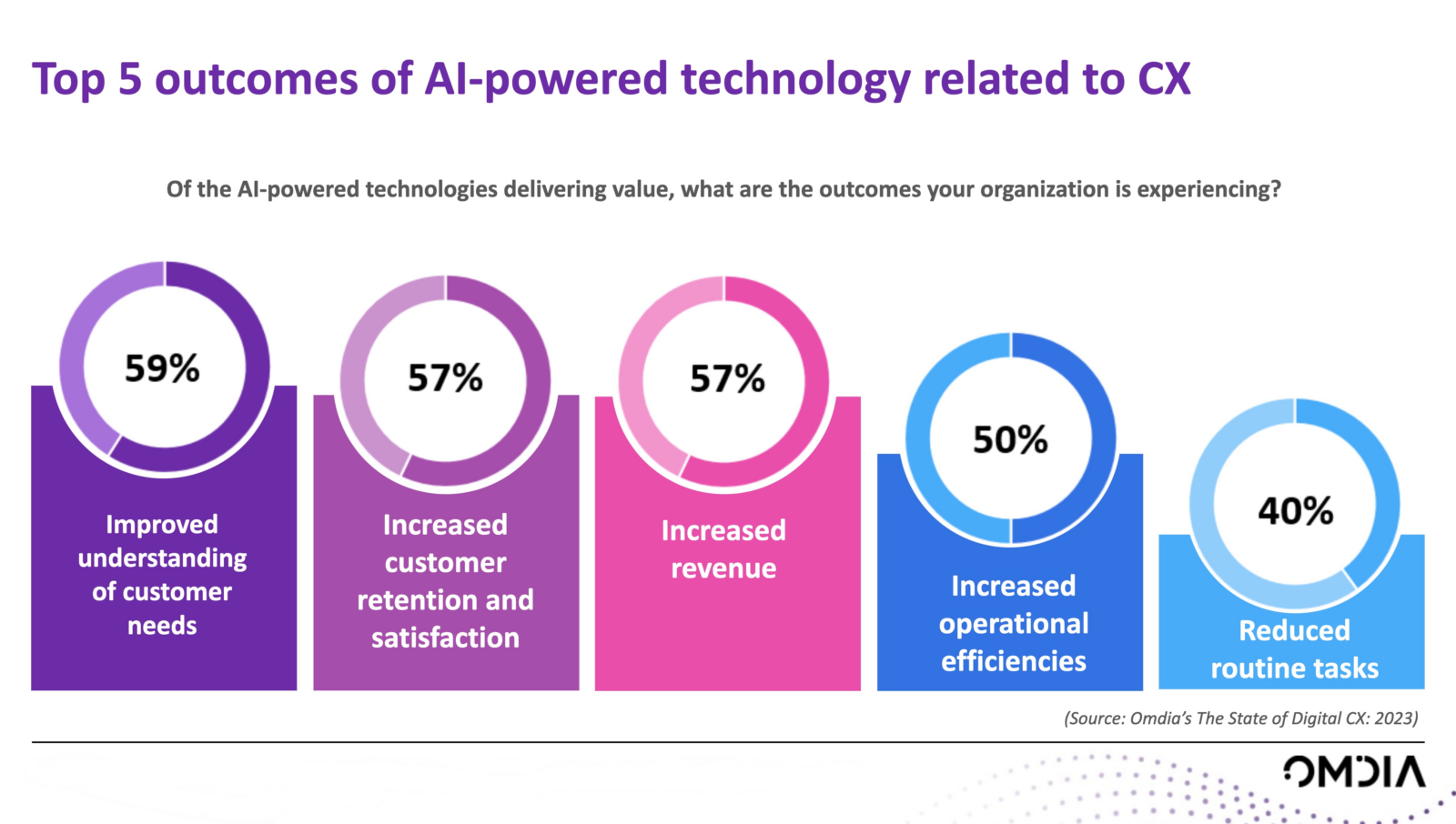It’s not just ChatGPT that can make a difference in your contact center operations. Along with generative AI tools, there are many other ways that artificial intelligence applications can improve your agents’ ability to handle inbound inquiries and deliver a better experience to your customers.
David Myron, principal analyst, contact center technologies for Omdia, outlined several opportunities to boost performance, cut costs and increase revenue at a recent webinar, “AI in Action: How AI is Revolutionizing Contact Center CX.” Eric Krapf, senior director, Informa, moderated the webinar, which was sponsored by Twilio.
“Enterprises are steadily gaining exposure to cloud-based innovation tools,” said Myron. “AI applications can leverage the abundance of data through analytic tools designed to improve customer engagement.”
Predictive routing, chatbots and agent assist tools are some of the ways AI tools are boosting contact center performance in real time, Myron said. They are also helpful in tasks like call transcriptions, surveys and digital and call analytics for quality measurement and training. For instance, generative AI tools can automatically create call notes after each customer interaction. They can also standardize the way call notes are created to ensure consistency, and most importantly they can reduce the time agents spend on routine call summarization reports.
Who’s doing what?
In his presentation Myron cited Omdia’s 2023 “State of Digital CX” survey, which found that 64 percent of responding organizations reported deploying agent assistance applications, while 57 percent said they were using web-based chatbots. “By 2024 the majority of these organizations plan to deploy agent assist applications,” Myron said.
But when asked where AI was adding the most value in the contact center, both agent assist and chatbots fell down in the rankings. Instead, intelligent call routing, social listening and ticketing, and digital CX analytics were at the top of the list.
To give enterprises and idea of the “dos and don’ts” of deploying AI, Myron listed three reasons why these automated tools can deliver significant value in the contact center:
• Employees know AI’s importance and these tools are adopted broadly.
• A strategy is in place that prioritizes AI outcomes.
• Have comprehensive AI data management and governance programs.
On the other hand AI delivers only limited value in these three scenarios:
• Lack of applicable use cases.
• Not capturing or quantifying results
• AI doesn’t integrate with existing business systems.
In general, data integration appears to be a top challenge to successful AI deployments, according to Myron. It can be too time-consuming to query omnichannel data, the data might not be transparent and actionable, or it might be took difficult to integrate data from multiple sources, he said.
“Existing CCs were not built to leverage real-time customer data,” added Lenore Files, senior product marketing manager, Twilio. “When agents aren’t seeing everything, the result can be lower customer satisfaction and lifetime value.”
But survey participants do expect AI to deliver more value to contact centers in the immediate future. The top five outcomes of AI-powered CX technologies were:
• Improved understanding of customer needs
• Increased customer retention and satisfaction
• Increased revenue
• Increased operational efficiencies
• Reduced routine tasks
Summing up the report, Myron said, “AI deployments in the contact center need to be integrated with relevant business systems. They also need to be predictive in terms of customer needs, conversational during customer interactions and generative to automate contact creation.”

